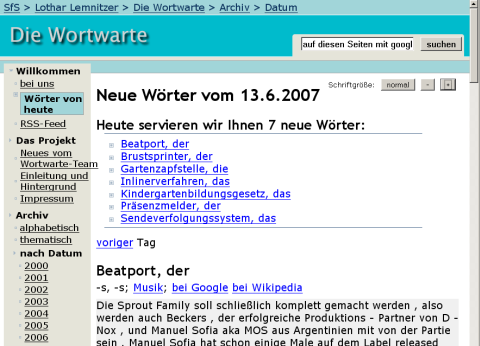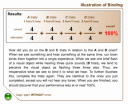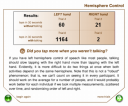To evaluate software that is depends on an expired system date, you may want to use this batch that wraps around calling a program.
1: | |
To evaluate software that is depends on an expired system date, you may want to use this batch that wraps around calling a program.
1: | |
So far in epidemiology case – control studies are defined by an approach where
… the past histories of patients (the cases) suffering from the condition of interest are compared to the past histories of persons (the controls) who do not have the condition of interest, but who otherwise resemble the cases in such particulars as age and sex ….
I usually explain controls as non-cases in the same overall environment Continue reading When controls are no controls
I have written earlier about the hygiene hypothesis and my doubts that more or less “hygiene” influences the development of allergy (blog | paper). As we are further swamped with regular statements like Continue reading Believe me, it ‘s not hygiene
That seems a usual phenomenon now: I am reading an interesting article (at Edge), want to know more about an author (Fitch) and end at a storming website at University of Tübingen (recording new German words). German linguistics seem to merge day after day with English linguistics.

Nature web focus today reports an overview of the four year project Encode (ENCyclopedia Of DNA Elements) that tried to identify all functional elements in 1% of the human genome. In addition, there are 28 companion papers in the June 2007 issue of Genome Research. The Nature issue includes a pull-out poster featuring a screenshot of the UCSC Genome Browser.
I am still in the process of reading all the GWA studies, so don´t expect any intelligent remarks. The main point seems to be that the majority of the human genome is being transcribed which is in sharp contrast to the textbooks (Strachan/Read IInd ed, p142 says that only ~3% of the nuclear genome is being transcribed). Using gene centric SNP panels in some of the GWAs therefore have not been such a good idea, yea, yea.
Here is a little scientific experiment for you – click wadsworth.com/psychology_d. My results:




(had to answer a phone call during the third trial ;-)
but fortunately there is a little help. Have you ever been wondered about the power-on time of your hard disk? It’s all there and this utility will reveal it: Continue reading So many threads to my data
Developmental Origins of Health and Disease (DOHaD)
Finding Global Solutions for the Origins of Disease
see www.congresswest.com.au/dohad/program.html
Perth, Australia
190 years ago, today on 12th June 1817, Karl Drais presented to the world his running machine (“Laufrad”, “Velociped” – as he called it, “Draisine” – as others called it). As I believe it is the first bicycle (bi – cycle) and therefore one of the most advanced inventions ever made. It is an invention that I need 2 hours every day and an invention that could cure many of the problems discussed now at G8 conference in Heiligendamm. Continue reading Karl Drais
So far I naively quoted others – “only to better express myself” (Michele de Montaigne). This will, however, change now after having read “The Quote Verifier – who said what, where and when” by Ralph Keyes. He nicely explains in the foreword that the misattribution process is not random Continue reading Too much checking on the facts has ruined many a good news story
The last 2 weeks have been extremely busy in population genetics – probably more advances than in the 2 decades before with 2 dozens GWAs (genome wide association scans) being published: Continue reading Busy times
Here I describe a bug in the UCSC Genome Browser display that I found this morning. When locating a SNP on the human genome (where I have only surrounding sequence) I usually do a quick BLAT search Continue reading Genome Browser Bug
I liked that quote from Professor Lipton in a recent essay about the “World of Science” where he repeats his earlier “Kuhn is Kant on wheels“:
Like Kant, Kuhn held that the world described by science is a world partially constituted by cognition. But whereas Kant held that there is only one form the human contribution could take, Kuhn argued that the contribution changes as science changes. Kuhn is Kant on wheels.
I am more attracted by an objectivist than a constructivist view — where the world has its own structure that is only revealed by science (at least in part) and religion (also in other parts). As I am currently reading Klemke – probably one of the best books in the field – maybe that will change my mind? Nay, nay.
Although the authors of a previous paper still desperately try to rescue their claim another gene has made the race: FTO described by Freyling, Scott and Dina. I have heard that obese people may not see their toes anymore but I haven´t heard of any fused toes, did you?
There is a new way to display Wikipedia content: WikiMindMap. Nice to view but it seems there are more ethanol related hazards…